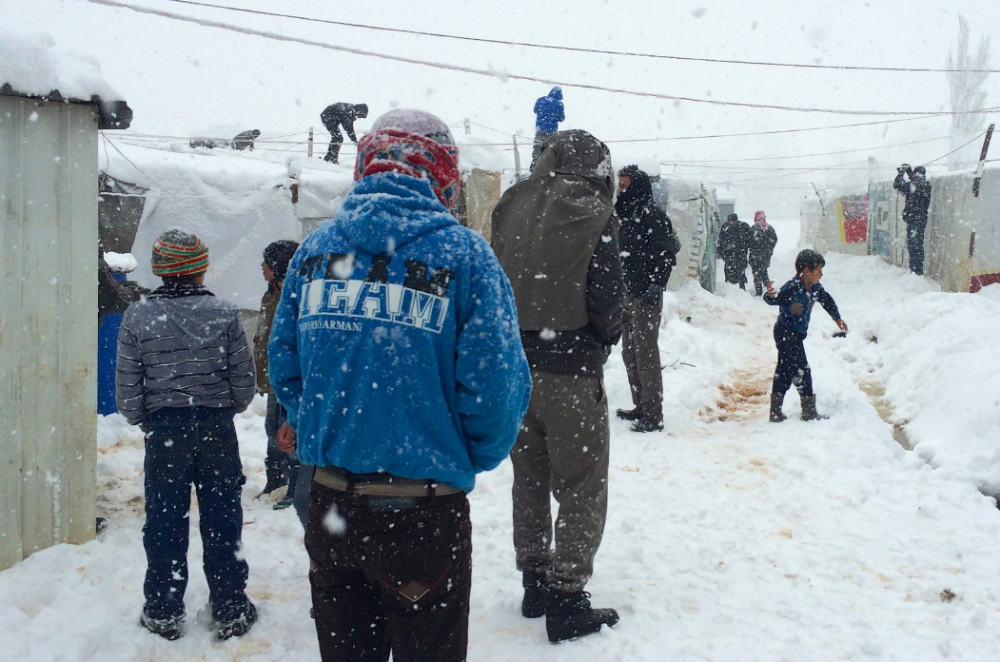Upcoming winter weather poses threat to refugees around the world

Refugees from Syria, Iraq, and in Greece face the threat of freezing temperatures as winter weather approaches. Many refugee camps lack the supplies, space, and funding to provide the necessary items to keep families safe and warm.
According to a report by the UN High Commissioner for Refugees, more than 14 million people have been displaced from their homes in Syria and Iraq, with nearly 5.9 million seeking refuge in neighbouring countries. The report estimates that 3.4 million vulnerable Syrian and Iraqi refugees need urgent help to prepare for and survive the up-coming winter.
UN High Commissioner for Refugees states that $168 million USD (£129 million) is needed to ensure that life-saving winterisation assistance is in place before freezing temperatures grip the region, exposing tens of thousands of families to the elements. For many, this will be the eighth consecutive winter in displacement.
UNHCR’s winterisation strategy focuses on three broad areas of intervention, including the allocation of seasonal cash assistance, core winter-focused relief items, and the winterisation of shelters and other infrastructure. The winterisation programme covers the period from September 2018 to March 2019.
A similar situation is unfolding in Greece where harsh winter conditions could claim the lives of vulnerable refugees that are living in squalid conditions. The overcrowded refugee camps are preparing for the colder weather but lack the number of blankets, winter clothes and space to provide for all of the refugees.
After visiting Greece last week, Benedicte Giæver, the Director for the Norwegian Refugee Council's Expert Deployment Capacity (NORCAP), said:
"We're facing a preventable human catastrophe. The refugee camp in Lesvos is bursting beyond capacity, and conditions are worsening by the week. As many as 150 people have arrived on a single day."
NORCAP has deployed some 50 aid experts to Greece since the beginning of the refugee influx in 2015. Some have worked directly with the emergency response through the United Nations Refugee Agency, UNHCR. Others have helped support the Greek Reception and Identification Services.
The AIDF Global Summit will return to Washington D.C, in 2019.
If you’d like to stay informed on the latest updates in aid and development, please sign up for the AIDF newsletter.
Photo Credit: UNHCR/L. Abou Khaled














